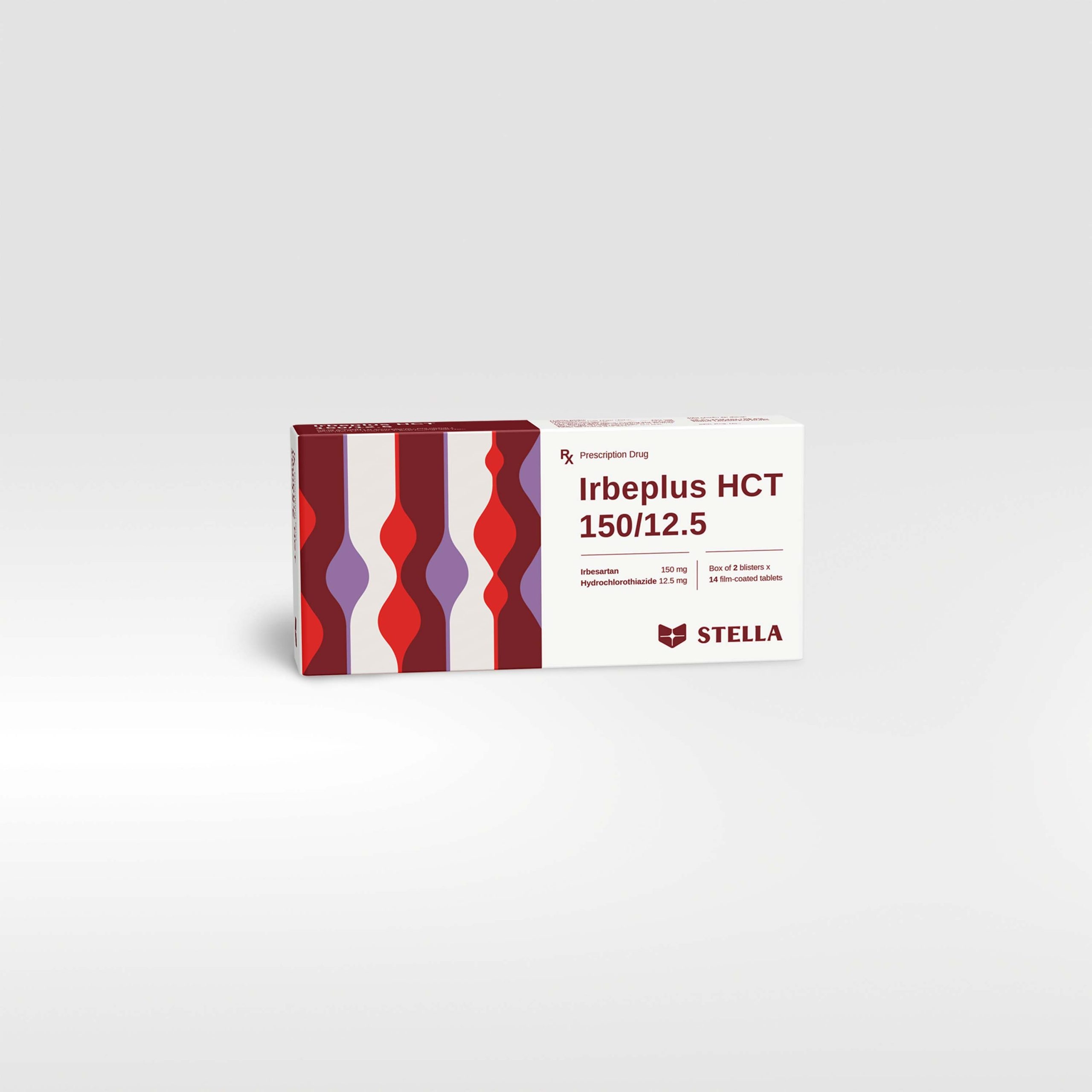Irbeplus HCT 150/12.5 Rx
Irbeplus HCT is a combination of an angiotensin-II receptor antagonist, irbesartan, and a thiazide diuretic, hydrochlorothiazide. The combination of these ingredients has an additive antihypertensive effect, reducing blood pressure to a greater degree than either component alone.
| Pack size | Box of 28 tablets |
| Shelf-life | 24 months |
| Composition | Irbesartan/Hydrochlorothiazide |
| Dosage forms and strengths | Film-coated tablet: Irbesartan 150 mg, Hydrochlorothiazide 12.5 mg |
Product code :















